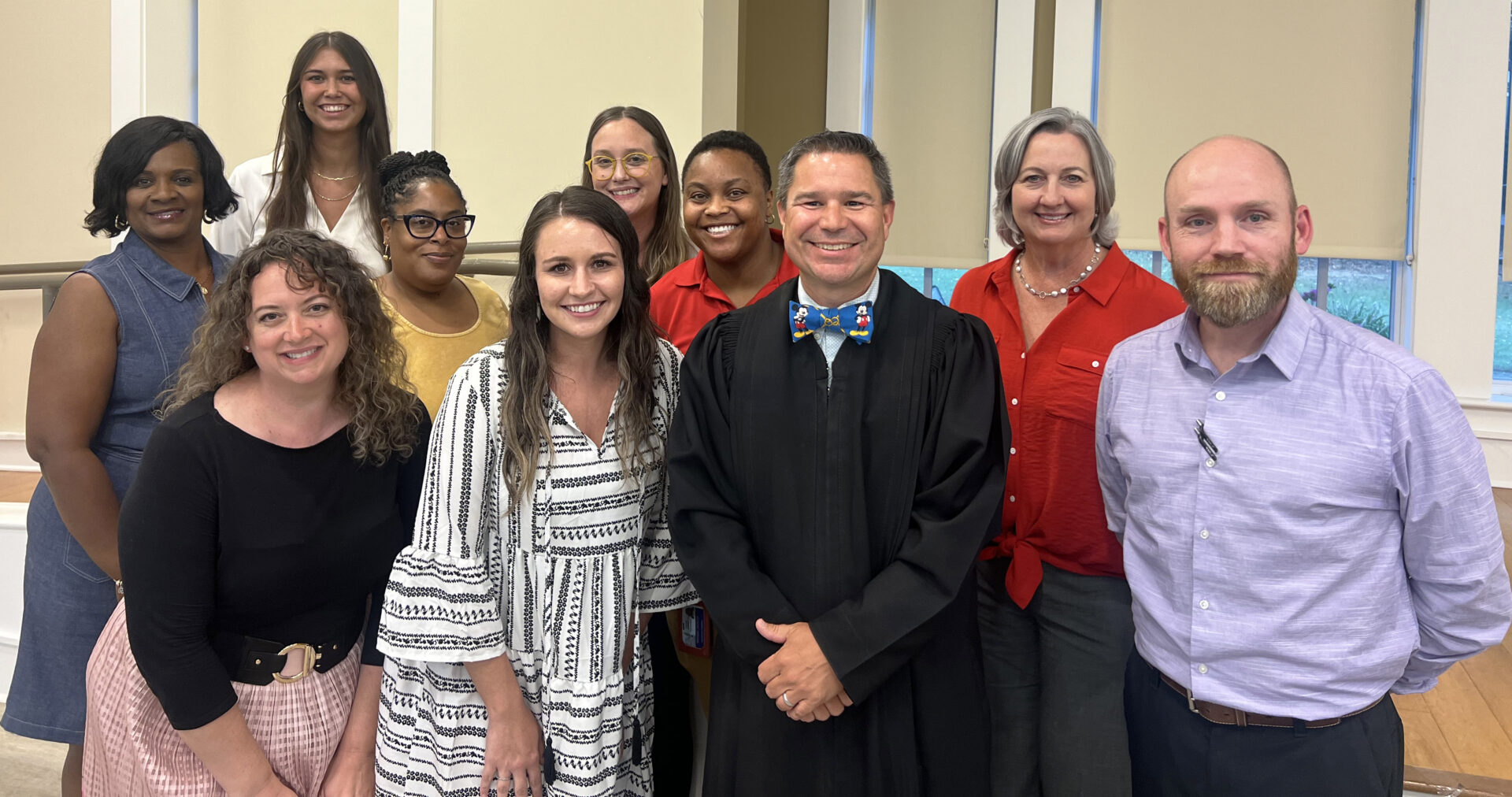
History and Jurisdiction
The State Court of Fayette County was created in 1994 by local legislation of the Georgia General Assembly (Ga. L. 1994, p. 4980). State Court began operating on January 1, 1997. The Honorable W. Fletcher Sam’s served as judge from 1997 through October 4, 2010. Judge Sam’s was succeeded by the Honorable Carla Wong McMillian until her appointment to the Georgia Court of Appeals. The Honorable Jason B. Thompson was appointed as State Court Judge of Fayette County by Governor Nathan Deal in April 2013 and sworn in on May 22, 2013.
State Court is a court of limited jurisdiction. State Court has jurisdiction, within the territorial limits of the county, over all criminal matters below the grade of felony, including misdemeanors, traffic violations, and county ordinance violations. State Court has jurisdiction over all civil matters, without regard to the amount in controversy, concurrent with the Superior Courts, unless the Superior Courts have exclusive jurisdiction. The State Court also has jurisdiction over the review of decisions of other courts as provided by law.
Criminal violations handled in State Court are prosecuted by the Office of the Solicitor General.
Our Goals & Objectives
Goal I: Promote long-term recovery of participants
Objectives: Provide community-based therapeutic treatment and other supportive services based on the individualized needs of each participant, supported through a comprehensive program of supervision, monitoring, and other elements such as rewards and sanctions.
Goal II: Reduce Cost
Objectives: Provide an alternative to long-term incarceration for offenders who match the eligibility criteria and reduce the substantial costs associated with that incarceration. In choosing this alternative, we will save taxpayer dollars, and court and prison costs will be decreased as well as lightening the burden on the criminal justice system to handle violent and other serious cases.
Goal III: Provide a means to achieve productive community involvement and responsible citizenship.
Objectives: The program will provide a platform that facilitates healthy and positive interactions with law enforcement and the criminal justice system. Participants will be required to complete community service work, job trainings, maintain full-time employment, and actively participate in community giveback projects.
Goal IV: Reduce and eliminate the use of alcohol and controlled substances while decreasing the recidivism rate.
Objectives: Mandate intensive substance abuse treatment and close judicial supervision and mentoring of all participants; Frequent, random, observed testing will be performed as well as intensive supervision with curfew checks and field visits; Impose immediate sanctions for noncompliance as well as positive reinforcement and rapid response to success; Focus on rehabilitation and recovery while requiring personal accountability to break the cycle of addiction.
Our Team
State Court Judge
Jason B. Thompson
Assistant Solicitor General
Neekisia Jackson
Assistant Solicitor General
Joseph Myers
Accountability Court Coordinator
Jourdan Crawford
Accountability Court Case Manager
Brian Reese
Court Appointed Counsel
Sara Yeager
Community Policing Team
Mikal Montford, Fayetteville Police Department
Probation
Catherine Makela, JCS Probation
Treatment
Valarie Walker, Lead Counselor
Treatment
Teresa Griggs, Counselor
Treatment
Wendy Thomas, Counselor
Treatment
Liesl Engelbrechr, Counselor
Treatment
Keo Carter, Counselor
Treatment
Jessica Eppinger, Counselor
Treatment
Christina Smith, Counselor
Testing
Germanus Ejiogu, Detect and Protect Lab
